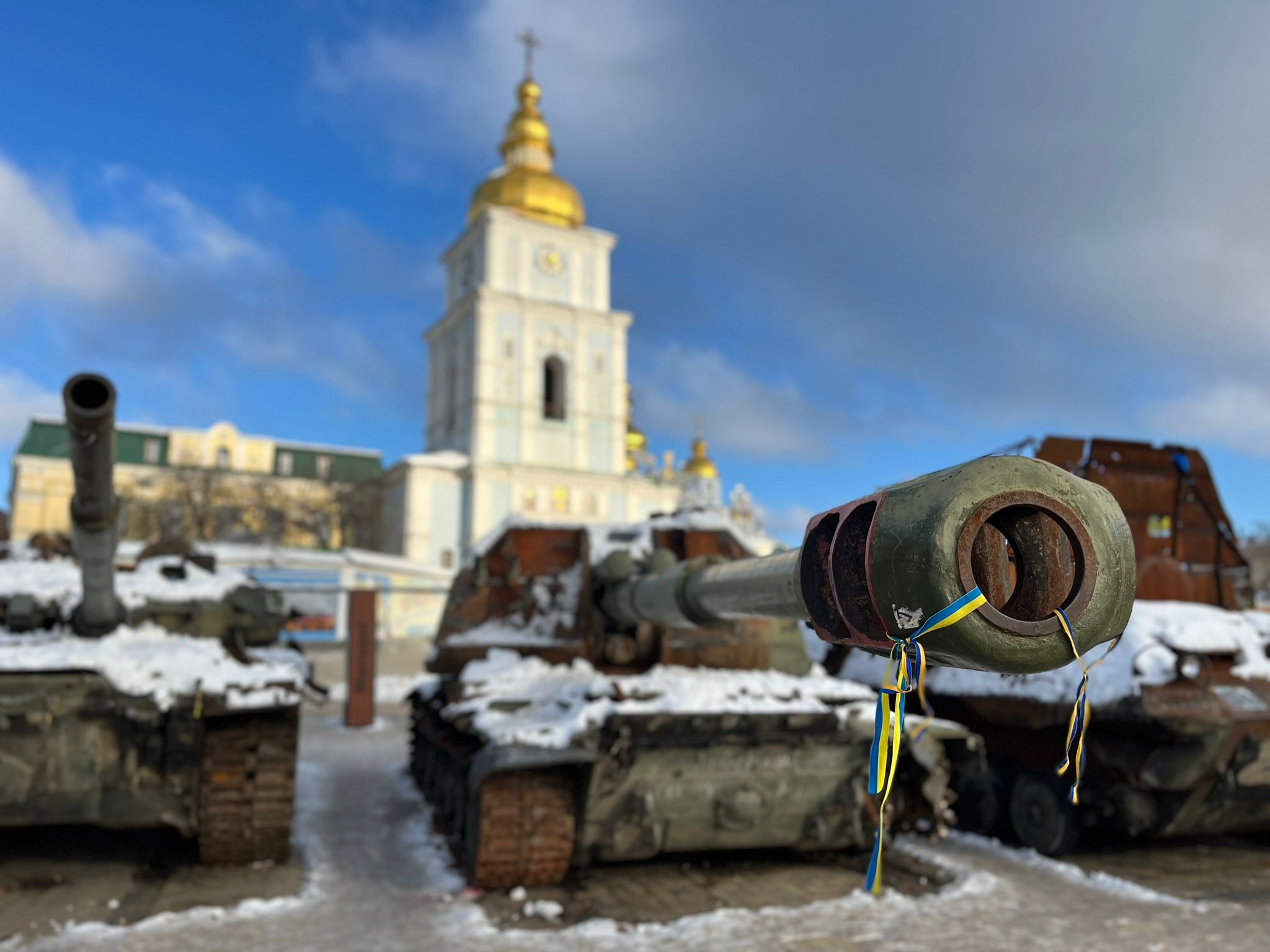Back in December Spearfish’s Ukrainian country specialist went back to Ukraine for the first time since the war began in February. Read how he navigated his way from across the Polish boarder to Lviv, Kyiv and then Dnipro.
Kyiv
For the most part, Kyiv works as per normal, but with some adjustments. The most tangible is the air raid sirens (“trivoga” in Ukrainian), which are more frequent than in Lviv. While they’re not necessarily audible throughout the whole city, they are announced on mobile apps.
By law, businesses are required to cease work during an alert, which can last for hours. Like for most citizens, adherence to this is patchy at best. A car rental company might lock its doors, while the cafe next door continues to serve. The result is that customers congregate in the cold on the street, waiting for a bank or a post office to open its doors again.
Often, that is the most visible sign of an air raid alert if it isn’t immediately audible. The curfew is also slightly longer than the rest of the country, from 23:00-05:00.
Utilities are more temperamental than those in Lviv. Blackouts are not infrequent, and often scheduled by the electricity providers rather than being an immediate result of severed connections. Markets and underpasses are filled with vendors, often pensioners, selling batteries, torches, candles and matches. Businesses and individuals are keen to order generators and large batteries, which sold out in Ukraine long ago and are now imported through the western boarders, often at three times the price.
With regular power cuts in the city generators are common place in the city
The streets are generally as busy as they were before February. While many people have left to travel further west or abroad, they have been replaced by others who fled from further east, visible by observing the vehicle number plate codes. The spoken language on the street was always around 50:50 Ukrainian/Russian in Kyiv, and remains in that ball park today, although the written language is almost exclusively Ukrainian. While many former Russian speakers have tried to switch to Ukrainian for political reasons, the influx of Russian speakers from the east has compensated. The result is that Russian can still be used more or less interchangeably with Ukrainian. English is spoken in foreign facing businesses like hotels, but is less widely understood by the average person than in Lviv.
Unsurprisingly, as the capital Kyiv continues to functions as the political centre of Ukraine. Political sentiment and slogans are visible, particularly in the centre around Maidan Nezalezhnosti (Independence Square) and the adjoining streets. Also visible are groups and individuals involved in political activity, such as raising financial support for the armed forces or selling pro-Ukrainian and anti-Russian articles.



